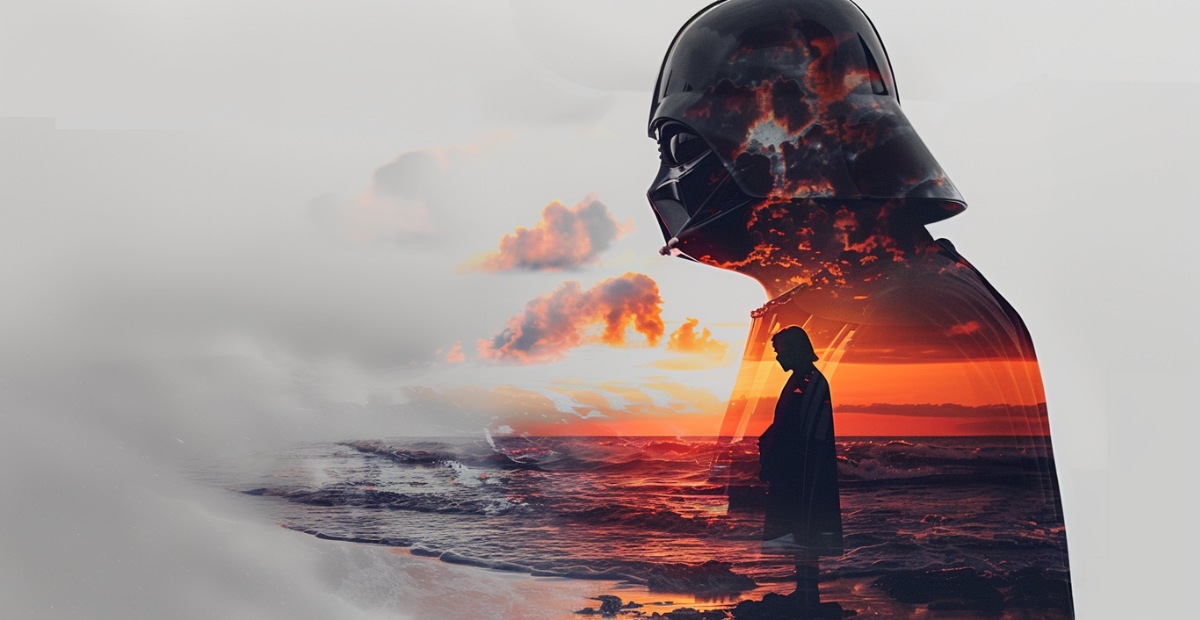I had no idea what I was getting into when I picked up the Revenge of the Sith novelization. The movie? Amazing. But the book? It hit different.
It’s like I finally understood the full weight of Anakin’s choices. By the end, he’s not just Darth Vader; he’s a complete wreck—angry, heartbroken, and absolutely haunted by regret. It was such a gut punch to see how far he’d fallen.
The Weight of It All
The novelization dives deep into Anakin’s internal struggle, and let me tell you—it’s brutal. Once he fully becomes Vader, it’s like the weight of the galaxy just crushes him. He knows he destroyed the Jedi Order, lost Padmé, and literally wrecked himself, body and soul.
1. The Moment Anakin Starts Feeling Regret
Before we get into Anakin’s moments of regret, let’s rewind to when his fall to the dark side truly began—the moment he intervened in Mace Windu’s duel with Palpatine. We all remember the scene from the film: Anakin cuts off Windu’s hand, Palpatine finishes him off, and within moments, Anakin receives the name “Darth Vader.” It feels quick, almost too quick.
But in the Revenge of the Sith novelization by Matthew Stover, that moment is much deeper—and far more conflicted.
Right after the betrayal, we get a glimpse into Anakin’s fractured mind. The book reads: “Anakin stared at the hand, but he no longer saw it. ‘Obi-Wan, Obi-Wan trusts me…’” Even in the middle of his turn, his thoughts are still with his former master.
When Palpatine tells him to pledge himself to the Sith and become his apprentice, Anakin doesn’t immediately accept. There’s hesitation. There’s fear. The novel describes: “A wave of tingling started at the base of Anakin’s skull and spread over his whole body in a slow-motion shock wave.” And when Palpatine says, “Join me. Pledge yourself to the Sith. Become my apprentice,” Anakin replies: “I—I can’t.” His left hand starts to tremble, and he hides it behind his back—still unsure, still afraid.
2. A Tornado of Emotions
Anakin’s slide into the dark side wasn’t just about wanting to save Padmé (although, yeah, that was a big part). His fear of losing her and his hunger for power were rooted in who he’s always been. Yoda even called it back when they first met—fear leads to anger, anger leads to hate, etc. Classic foreshadowing.
And let’s be real: the Jedi didn’t exactly help. They denied him the rank of Master (ouch), and then there was the whole Padmé-leaning-on-Obi-Wan thing, which sent him spiraling into paranoia and betrayal. Palpatine, meanwhile, is just sitting there like, “Good, good,” feeding Anakin’s ego and grooming him for the fall.
Once he realizes Palpatine played him, though? The rage is unreal. He’s mad at everyone—himself, Palpatine, the galaxy. But the anger doesn’t fix anything; it just leaves him drowning in regret. He misses his mom, he misses Obi-Wan, and he’s mourning Padmé before she’s even gone. It’s a lot.
3. Vader: All Power, No Freedom
Here’s the kicker: becoming Darth Vader doesn’t fix his problems—it makes them worse. He’s supposed to be this all-powerful Sith Lord, but really, he’s just trapped in his own bad decisions. He’s physically wrecked, emotionally gutted, and completely alone.
The novel really nails this sense of helplessness. Vader might have the galaxy at his feet, but inside, he’s still Anakin—broken, angry, and full of regret.
Even in Return of the Jedi, when Luke tries to bring him back, you can feel that regret bubbling up. That line, “It’s too late for me, son,” hits so hard because you can tell part of him wants to believe otherwise. If he didn’t care, he wouldn’t even listen to Luke, right? But deep down, he’s haunted by all the “what-ifs” and “could-have-beens.”
The Tragedy of Anakin Skywalker
Anakin’s regret is what makes his story so tragic. He had everything—power, love, friendship—and he threw it all away. The Revenge of the Sith novelization doesn’t shy away from showing just how much he hates himself for it.
His fall isn’t just about the dark side winning. It’s about losing Padmé, his mom, and his brotherhood with Obi-Wan. It’s about realizing that, no matter how powerful he becomes, he can’t undo the past. And that’s what makes his redemption in Return of the Jedi so satisfying—because, after years of pain, he finally breaks free.
Anyway, if you’ve read the novelization, you know what I mean. Anakin’s story is just one long, heartbreaking lesson in how fear and anger can destroy everything you love.

